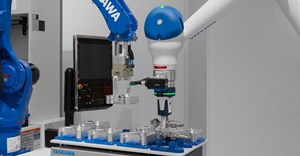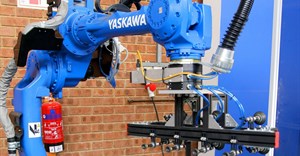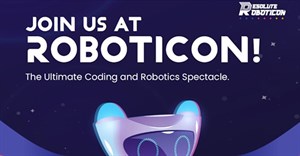Trending



 Sabre EMEA 2024 Awards: Razor PR, Retroviral top SA agenciesDanette Breitenbach
Sabre EMEA 2024 Awards: Razor PR, Retroviral top SA agenciesDanette Breitenbach

Elections 2024
Combining the power of man and machine

The book Human + Machine by Accenture leaders Paul Daugherty and Jim Wilson, for example, showcases how 1,500 enterprises are using AI to transform for the better, improving work processes, increasing productivity, driving innovation and engineering business models that are more fluid and adaptable, enabling them to change on the fly.
Whilst more and more businesses are indeed realising the business value of AI, most have only implemented it in certain areas of their business and our understanding of it remains limited. So, as our knowledge of AI matures in this post-digital world, we foresee that businesses will move beyond deploying AI in pockets, to integrating it with their very strategic and operational DNA, to unlock their full potential and gain a competitive advantage.
AI in business
The three key themes for board-level discussions about AI should be: the possibilities and limitations of AI, the role of data in AI and the role of humans in AI.
- What are the possibilities and limitations of AI?
To date, the businesses who have typically derived optimal value from utilising AI, are the businesses who are digital by design, including the likes of Amazon, Facebook and Google. For most other businesses though, the use of AI at an enterprise scale remains an aspirational topic. AI and advanced analytics are increasingly recognised as key pillars in the digital strategy of organisations.
The use of AI in pockets within the organisation is important as far as demonstrating internal capability and gaining incremental benefits go, but to get ahead of the increasing disruption and competition in the times we find ourselves in, businesses will have to rapidly increase their knowledge on AI, and make AI capability one of the key cornerstones that their businesses are built on.
- What is the role of data in AI?
Data forms the very foundation of AI and machine learning systems. Businesses will thus have to use the right technologies and techniques to ensure they gather the right data, on the right platform and in the right quantity. With gathering data though, comes the huge responsibility of data governance and security.
Businesses must ensure they have up to date policies and processes in place to govern how their data is collected, used and shared, across the entire organisation and they must be completely transparent about the way they collect, use and share their data – all with a significant degree of automation to minimise human biases and errors.
Finally, it is critical for businesses to never lose sight of why they’re collecting this data in the first place, which is to improve business outcomes.
- The role of humans in AI
Humans have a critical role to fulfil to ensure that AI continues to achieve the business’ strategic and operational goals and objectives. To this end:
- Humans must train AI systems with the right kind of data
- Humans must be able to explain how AI arrives at particular decisions
- Humans must monitor whether AI fulfils the purpose that it was designed for, in a way that adds value
- Humans must train AI systems with the right kind of data
Unleashing a business’ ultimate potential
Ultimately, people will always remain the greatest asset of any business as they are after all the ones who create the business’ vision, and are able to see that vision through, right through from conceptualisation to execution.
In this post-digital era, businesses must, therefore, continue to leverage AI for executing all those mundane and repetitive tasks to free up their people’s time. At the same time, a business must rethink how to best utilise that extra time, and consider reskilling or upskilling their people to fulfil other, creative and intelligent tasks that hold higher business value.
However, to derive the full benefit from their AI investments, businesses must expand their AI capability beyond the mere automation of parts of their workflow. Instead, they must make it a generative part of the process that proactively enables collaboration between man and machine and that supports and drives tangible business results.
In the medical space, for example, AI can be used to rapidly process complex patient data and provide a diagnosis and treatment protocol, enabling doctors to assist more patients in a day. In manufacturing, AI can quickly process data on equipment, materials and processes, automate findings and deliver actionable information to help the business’ decision-makers to reduce waste and optimise their processes.
In banking, AI can predict future outcomes and trends by analysing past information and behaviours to help banks swiftly detect fraud, anti-money laundering patterns and make informed customer recommendations. These are just a few examples of what can become possible when man and machine work in tandem.
Robots, machines for humans
Top businesses worldwide are fast debunking the myth that robots are designed for replacing humans, by proving that robots are indispensable for protecting humans by fulfilling “dirty and dangerous” tasks. This ranges from collecting and packing radio-active waste and lifting heavy objects, to working in toxic, contaminated environments.
But, robotics are no longer contained to the warehouse or factory floor alone. Autonomous vehicles, delivery drones, and other robot-driven machines are fast entering the world around us, allowing businesses to extend this intelligence back into the physical world.
As 5G is poised to accelerate this trend, every enterprise must also begin to re-think their business through the lens of robotics. Where will they find the most value, and what partners do they need to unlock it? What challenges will they face as they undergo this transformation, and what new responsibilities do they have towards their customers and society at large?











